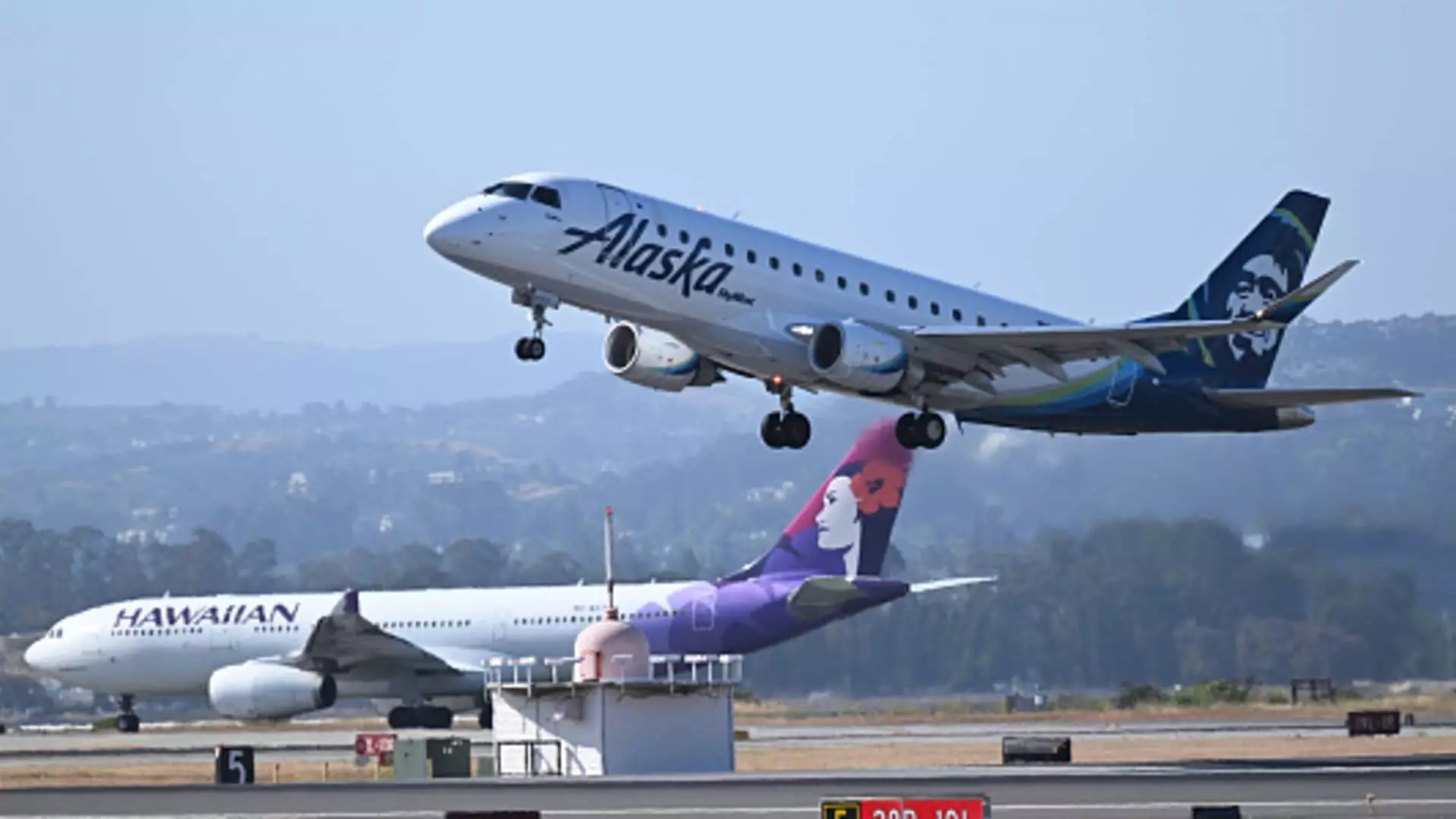Alaska Air Group, the parent company of Alaska Airlines, recently announced its agreement to acquire rival airline Hawaiian Airlines in a significant deal worth $1.9 billion. This acquisition marks another potential regulatory battle in the airline industry, as it follows the trend of consolidation that has been occurring in the market. The deal presents both opportunities and challenges for Alaska Air Group, as it aims to become a market leader in the premium-travel Hawaii market.
Alaska Air Group’s decision to acquire Hawaiian Airlines was driven by a unique opportunity in terms of valuation. Shane Tackett, Alaska Airlines’ CFO, emphasized that the deal would enable the combined companies to become a “market leader” in the premium-travel Hawaii market. This strategic move will position Alaska Air Group as a stronger competitor in the industry.
Hawaiian Airlines has faced numerous challenges in recent years, contributing to its decline in performance. These challenges include the Maui wildfires, increased competition from Southwest Airlines, and a slow recovery of travel to and from Asia after the pandemic. These factors have resulted in net losses for Hawaiian Airlines, making it an attractive and relatively undervalued target for Alaska Air Group.
The acquisition of Hawaiian Airlines by Alaska Air Group may face opposition from regulatory bodies such as President Joe Biden’s Justice Department. The airline industry has witnessed regulatory battles in the past, with the Justice Department successfully breaking up regional partnerships and blocking proposed acquisitions. This history of regulatory challenges adds an element of uncertainty to the approval process for the Alaska-Hawaiian deal.
Consolidation has led to four major carriers, namely American, United, Delta, and Southwest, controlling about 80% of the U.S. market. This dominance has resulted from years of mergers, creating barriers to entry for smaller airlines. The acquisition of Hawaiian Airlines by Alaska Air Group presents an opportunity for the combined company to enhance its competitive position against these major carriers.
The acquisition of Hawaiian Airlines by Alaska Air Group is expected to close in 12 to 18 months, subject to regulatory approval. Alaska CEO Ben Minicucci expressed confidence that the deal would be approved, highlighting the benefits of the merger in terms of overlapping markets, increased daily flights, and a larger network. However, the support of flight attendants, represented by the Association of Flight Attendants-CWA, will also play a role in determining the success of the merger.
Upon completion of the acquisition, the combined company will be headquartered in Seattle, where Alaska Airlines is located. The two airlines will operate under a single platform while maintaining their respective brands. This integration will allow Alaska Airlines to expand its network and increase its flight offerings from the Hawaiian islands to destinations throughout North America. Additionally, the acquisition will bring Hawaiian’s long-haul flying to and from Asia under Alaska’s umbrella, further strengthening the combined company’s market position.
The acquisition of Hawaiian Airlines by Alaska Air Group represents a strategic move to enhance competitiveness and market presence. Although Hawaiian Airlines has faced challenges in recent years, it presents a unique opportunity for Alaska Air Group to become a market leader in the premium-travel Hawaii market. However, regulatory battles and the support of stakeholders will play a critical role in the success of this acquisition. The future integration of both airlines will determine the extent to which Alaska Air Group can strengthen its position in the industry and continue its growth trajectory.


Leave a Reply